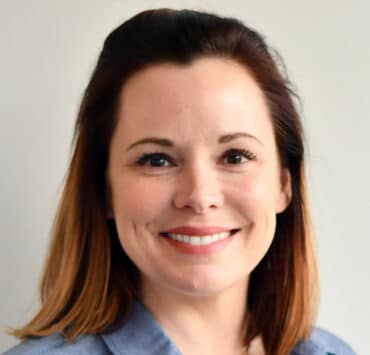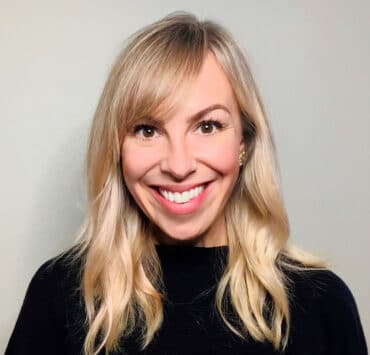Patrick Curry is out to change popular misconceptions. As a compliance professional, he’s heard all of the stereotypes. He’s seen business leaders bristle when he walks into a room. “People think we’re revenue prevention, and they view us as the police,” he says. “We want our business partners to think of us as trusted guides who can help them reach better outcomes.”
It may be an unconventional thought, but the vice president of compliance at Omada Health isn’t a conventional leader. Most compliance officers have trained as attorneys. Curry, on the other hand, holds a PhD in history and wrote a dissertation on the formation of female political identity in nineteenth-century France.
“I wanted to structure everything on trust and relationships, because if business leaders and decision-makers don’t trust compliance, we can’t be effective.”
Patrick Curry
Completing the rigorous program at UC Irvine taught Curry how to process large volumes of complex data in an efficient way. He started his corporate career in project management at General Electric, and later entered healthcare as a senior compliance manager at OTN before McKesson acquired the company in 2007. After coordinating compliance and privacy diligence and integration for the $500 million deal, Curry spent a decade building and managing related standards and programs for several group business units.
The experience helped Curry build the foundation he relies on to this day. “I was able to watch different people tackle similar problems in different ways, and observing a variety of effective approaches taught me a lot and helped me form my own style,” he explains.
In 2017, Patrick Curry joined Omada Health to protect the digital care provider as it grew its team, expanded its services, and executed a strategic growth plan. After logging years of experience at a massive global company, he would have the opportunity to make his own mark on compliance at an agile and fast-moving start-up. “There was a lot of freedom and encouragement to grow and improve the function in an atmosphere of creativity and collaboration,” the VP says.

While Omada already had the start of a compliance program in place, Curry moved to emphasize partnership and add formality. “I wanted to structure everything on trust and relationships, because if business leaders and decision-makers don’t trust compliance, we can’t be effective,” he says. After investing time to build rapport and learn about goals and outcomes, Curry focused on early wins.
Partnering with IT, security, sourcing, privacy, care delivery, and product teams to build the right processes and strategies for information governance and document management was critical in that era. Omada launched a diabetes management program in 2018, hit a thousand customers in 2019, and achieved NCQA accreditation in 2021. Through the journey, Curry’s teams developed guiding principles and consulted on licensures, regulatory audits, and other oversight matters.
“We want to teach our colleagues what we do and then listen to their goals carefully. That way, when they ask if they can do something we can almost always find a way to get them to a ‘yes.’”
Patrick Curry
These efforts helped prepare Omada Health to deliver on its mission to improve health outcomes for people living with chronic conditions. In early 2022, the company closed a $192 million Series E financing round to help bring treatment to millions more patients across the US. Omada is using the funds to accelerate hiring, personalize care, and invest in development.
The mission resonates with Curry and those he works with in compliance. “What we do for the company helps our clinical staff offer the care that improves life for a huge amount of the population that suffers from a chronic disease,” he says. Patients access Omada’s multiproduct platform through their health plans and partner with coaches who leverage insights to produce behavior change.
Each year, Curry and others in the compliance group perform internal audits and test their own performance. The practice, which he learned during his time at McKesson, ensures the team delivers the best value and performance to the company. It’s currently rolling out new tools to gather data regarding effective training and implementation, while investigating new insights on patient safety.
Those activities take up a lot of Curry’s time, but he’s careful to set aside office hours for another important task: listening. He’s made an effort to embed himself and members of his team on project teams and at all levels across the organization. Doing so helps those pursuing developing tech-laden services find new ways to accomplish their goals without compromising patient privacy or putting the company at risk.
“We want to teach our colleagues what we do, and then listen to their goals carefully,” Curry explains. “That way, when they ask if they can do something we can almost always find a way to get them to a ‘yes.’”
These practices have brought undeniable results. Patrick Curry’s counterparts don’t view compliance as a necessary evil. At Omada Health, it’s a strategic part of the long-term strategy.
Reciprocity is a leader in information security risk and compliance, equipping organizations with the fastest, easiest, and most prescriptive information security solutions in the market today. We’re proud to partner with Omada Health as they pave the way for a more secure healthcare industry.


